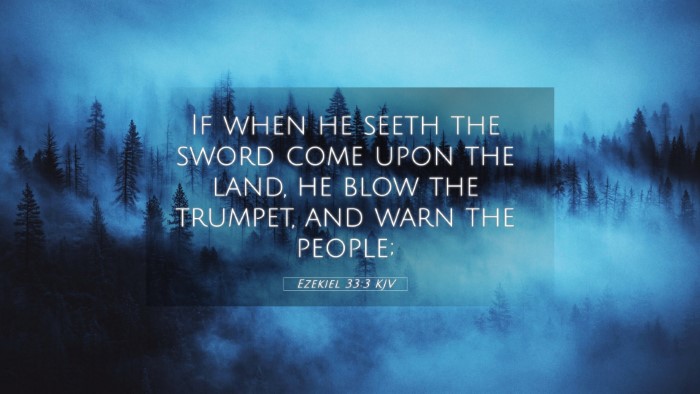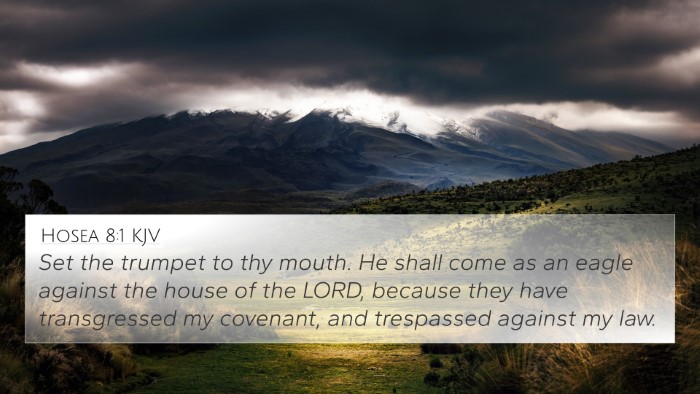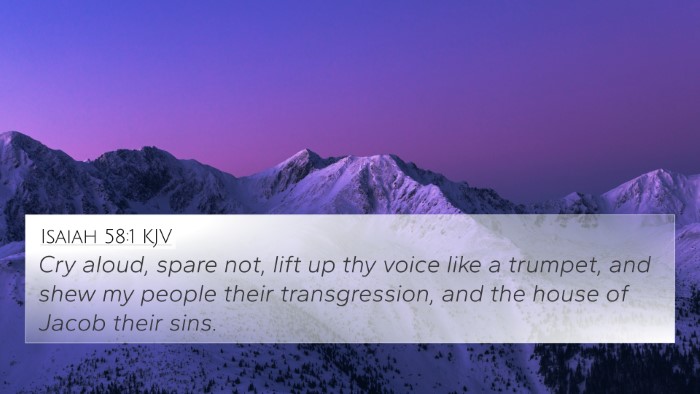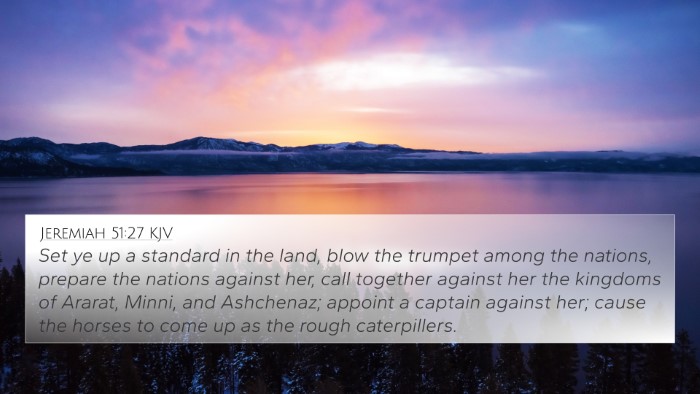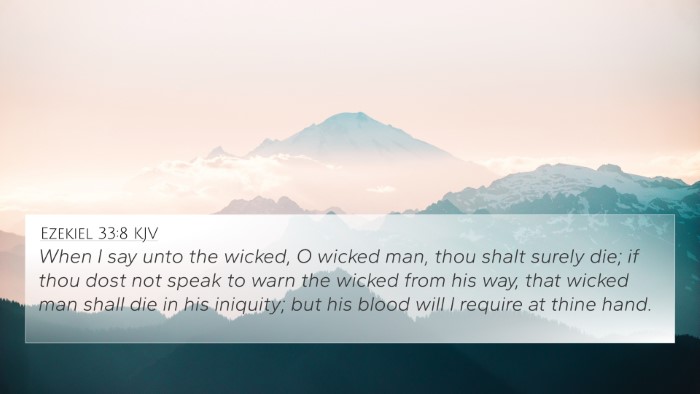Ezekiel 33:3 - Understanding the Warning of the Watchman
Ezekiel 33:3 states: "If when he seeth the sword come upon the land, he blow the trumpet, and warn the people."
Summary of Ezekiel 33:3
This verse emphasizes the responsibility of a watchman, who must alert the people about impending danger. The analogy of the watchman is crucial in understanding the prophetic role in Israel, where the prophets were tasked to warn the people of social, moral, and spiritual decline leading to divine judgment.
Commentary Insights
-
Matthew Henry's Commentary:
Henry highlights the moral duty of the watchman, emphasizing that failure to warn results in blood on the watchman's hands. He points out that the prophet's role is to sound the alarm so that the people can prepare and repent.
-
Albert Barnes' Notes on the Bible:
Barnes notes that the watchman's duty is not merely to predict the future, but to actively alert the people to danger. He connects this metaphor to the broader responsibilities of church leaders today, illustrating that they must educate and warn their congregations about spiritual threats.
-
Adam Clarke's Commentary:
Clarke elaborates on the concept of accountability in leadership and the importance of obedience to God’s call to warn others. He reflects on the communal responsibility to heed warnings and not ignore divine guidance.
Bible Cross-References
- Jeremiah 6:17 - The call to listen to the sound of the trumpet.
- Isaiah 58:1 - A command to cry aloud and spare not, raising the alarm about sin.
- Ezekiel 3:17-19 - A similar statement about the watchman's duty and personal accountability.
- Acts 20:26-27 - Paul declares his innocence regarding the church, laying bare the responsibility to proclaim the full counsel of God.
- Hebrews 13:17 - The call to obey and submit to leaders who keep watch over souls.
- Matthew 24:42 - An exhortation to watch, as we do not know the hour of His coming.
- Luke 12:35-40 - The necessity of being prepared and vigilant for the master’s return.
- 1 Peter 5:2-3 - A charge to shepherd the flock of God and be an example to the people.
- Romans 10:14 - The importance of proclaiming the message of salvation; how can they hear without a preacher?
- Revelation 22:17 - The Spirit and the bride say, "Come!" emphasizing the call to warn and invite others to salvation.
The Importance of the Watchman
The role of the watchman in Ezekiel 33:3 extends beyond mere observation; it symbolizes the active role of spiritual leaders in guiding their communities. As interpreted by various scholars, this verse serves as a foundation to explore the theme of accountability among those who are called to lead in both the Old and New Testaments.
Connections to Other Biblical Themes
This verse also connects with numerous biblical themes, such as:
-
Accountability: Leaders are responsible for the spiritual well-being of their community, resonating throughout Scripture.
-
Warning and Repentance: The overarching narrative of the prophets and their call for repentance appears consistently throughout the Bible.
-
Preparation: Believers are encouraged to be vigilant and prepared, a message that permeates Jesus' teachings.
Thematic Bible Verse Connections
Thematically, Ezekiel 33:3 evokes the imagery of the protective watchman and the need for vigilance against spiritual threats. This idea of watchfulness can also be seen in other scriptures where vigilance is encouraged, drawing a parallel between Scripture and practical Christian living. Many of the New Testament letters echo this message, urging believers to remain alert against false teachings and moral complacency.
Cross-Referencing Biblical Texts
Cross-referencing Ezekiel 33:3 with similar passages enhances understanding and draws deeper thematic connections across both Testaments. Some essential methods for cross-referencing include:
-
Utilizing a Bible Concordance to find verses related to the themes in Ezekiel 33:3.
-
Engaging in a Cross-Reference Bible Study to explore parallels in prophetic literature and New Testament admonitions.
-
Analyzing the relationships between prophetic warnings and New Testament exhortations, such as in the letters of Paul.
Conclusion
Ezekiel 33:3 serves as a profound reminder of the responsibility shared by spiritual leaders to warn their communities of impending dangers and the necessity for all believers to remain alert and responsive to God’s call.
Through careful analysis and cross-referencing with other Biblical texts, a more comprehensive understanding of the role of the watchman emerges, enriching one’s study of the scriptures.

